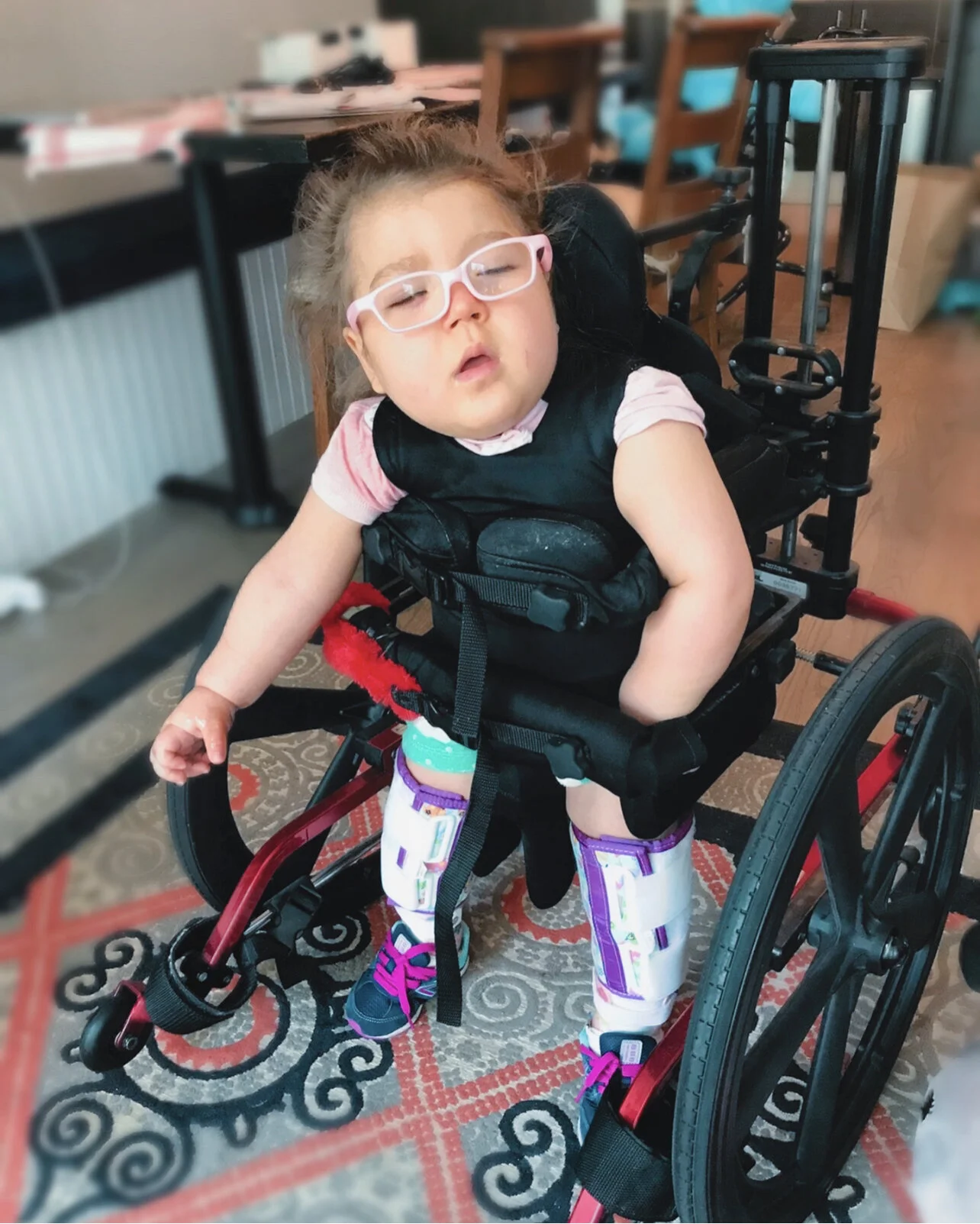Forced retirement
“Did you fast before coming in today?” the phlebotomist asked.
“No, but I’m not getting a CMP so it should be fine.”
I felt a small rush as words came out of my mouth that I hadn’t uttered in over a year.
CMP, CBC, VBG, this alphabet soup of blood tests used to be a regular part of my vocabulary along with words like quantitative immunoglobulins, GABAergic and fasciculation. It took me years to learn these words, what they meant and how to read any corresponding test results. But I had to if I wanted to be the best caregiver I could and give Adelaide the best chance at a healthy life. I learned to call spit, secretions, traded fever for febrile, and normal for baseline, because early on in Adelaide’s medical journey I learned that her medical providers would take me more seriously if I used their words, their language. But also, when you spend enough time in another land you just start to pick up the vernacular, like calling chips crisps.
Learning this language and using it to care for and advocate for Adelaide, was one of my favorite parts of my job - and then I was forced into retirement.
I’ve spoken before about how when Adelaide died we didn’t just lose her, we lost an entire community. Nurses that felt like family were no longer a part of our daily lives. Doctors, whose numbers I had on speed dial, were no longer in regular communication. The parking attendants, Au Bon Pain workers, PICU nurses and hospitalists, among SO many others that we saw monthly at the hospital - if not weekly - were now memories. We never even said goodbye.
It hadn’t dawned on me, until I sat in the phlebotomist’s chair this week, how much I also miss the the language, learning and science. I miss surprising someone with my medical knowledge. I miss being a mama bear and going toe to toe with doctors, discussing and debating what is best for my daughter. I miss the rush that comes from knowing I am an expert. I was an expert in Adelaide, no one knew her better. But it wasn’t just that I was an expert in her - most parents are experts in their children - I was an expert in her AND was called on to consult on her behalf regularly from routine questions to life and death scenarios. It was unbelievably stressful, the trauma of it all will stay with me forever. It was also a rush.
I realize this may seem bizarre - why would I remember these words and culture fondly when they caused me, and more importantly Adelaide, so much pain? Perhaps, it comes off as ego-driven that I got a rush when advocating for Adelaide. I would argue that we all feel a rush when we are working, producing, delivering at our peak. The difference was my job wasn’t negotiating a business deal, it was advocating for my daughter.
It took me a long while to overcome my feelings of being overwhelmed, unintelligent and generally limited in caring for Adelaide. But I grew to love being her advocate and I miss that job deeply. Perhaps this is it what it feels like when people retire from a job that they truly love.
Grief is so much more than missing the person who is gone. It is missing the interactions of the people who surrounded them. It is missing their activities and routines that they brought into our life: the record of their alma mater’s football team or their favorite band’s music catalogue. And, in the case of the chronically ill, it can also include missing the medical language and culture we learn while caring for them. As my grief journey continues, I am continually surprised by all the ways our loved ones are connected to us and how that adds layers to our grief. The more connections, the more layers of grief there will be to work through. I can recognize that I’ve come a long way in my grief journey in a relatively short period of time, but I also know there is still a very long way to go. It is also entirely possible that the layers of my grief will be infinite. Bearing that in mind, I will unapologetically hold on to my small rushes of medical knowledge and pride. Her death forced me to retire from the most rewarding job I will ever hold, but those connections to her live on. Even if that’s only now from a phlebotomist chair.
May 2019




